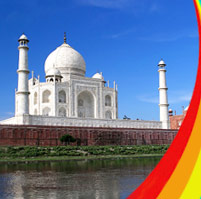Every religion has a different view point about
various aspects of life. Well, in this article, we will talk about how
Moksha is viewed by different religions.
Hinduism
In the Hindu religion, Moksha is associated with the concept of self
realization, in which an individual understands the purpose why he is
being sent on earth. When a person realizes the power of God and
understands his ultimate goal, he strives hard to reach his final
destination, i.e. Moksha or salvation. Among Hindus, Moksha is viewed as
the unification of man and God. To know more about Moksha in different
religions, read on…
Self realization makes you aware of the source of all phenomenal
existence, as in Brahman. This in turn brings you closer to God, thereby
enabling you to converse with God, the creator and preserver of this
Brahman. Moksha is the stage, when a person tends to let go his worldly
conception of self and what he can think of is that, he is just a normal
being, who is being sent on earth by God to accomplish a goal. This goal
is nothing but good Karma that an individual must perform for the
wellbeing of others.
Jainism
In the Jain religion, Moksha and nirvana are considered as synonymous
concepts. They are of the opinion that, when a person attains Nirvana,
he gets liberation from the cycle of death and birth and then he becomes
a Siddha, one who has accomplished the ultimate goal of his life.
Buddhism
The Buddhist religion lays emphasis on individual effort as means to
achieve Moksha. The main point of focus in the Buddhism philosophy is
Moksha. It says that the main cause of human sufferings is nothing else
but the human beings themselves. It attributes the increasing and never
ending human desire as the main factor that leads to pain and miseries.
Thus, Buddhist philosophy preaches its people to detach themselves from
the worldly pleasures and seek Nirvana that will ultimately pave way for
salvation.







